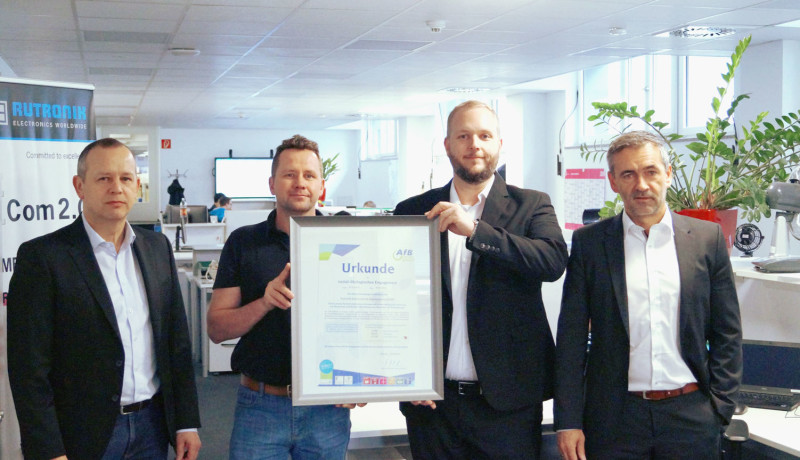Rutronik honored for its environmentally friendly redistribution of used IT equipment
on

Rutronik continued its cooperation with Europe’s largest non-profit IT company in 2018, which saw the Ispringen-based distributor hand over used IT equipment such as notebooks, PCs, monitors and business cellphones to AfB for data erasure, refurbishment and resale. By recycling and returning the devices to the economic cycle, electronic scrap is avoided and natural resources are conserved. The equipment provided by Rutronik alone saved 23,280 kg of iron equivalents, 21,329 kg of CO2 equivalents and 60,833 kWh of energy in 2018. The latter corresponds to the average annual electricity consumption of roughly 30 two-person households. Further, yet another workplace for people with disabilities was created.
Marco Nabinger, CIO Rutronik: “We are delighted with the extremely positive results of this long-standing cooperation. Rutronik and AfB operate in a sustainable manner, thereby creating social and ecological added value. For us, it’s an integral part of our corporate responsibility.” During the certificate presentation, Alexander Schwander, Partner Manager at AfB, underlined the mutually beneficial cooperation: “Last year, Rutronik presented AfB with 351 pieces of IT equipment. More than 87% of the presented hardware was put back onto the market. The partnership with Rutronik takes AfB one step closer to its long-term vision of creating 500 jobs for people with disabilities.”
AfB and Rutronik have enjoyed a strong relationship built on trust and understanding within the field of corporate social responsibility (CSR) since 2005. The organization refurbishes IT equipment no longer required by the distributor for reuse in the private sector. The non-profit business and its employees collect IT equipment that is no longer required several times a year and perform certified data erasure. The hardware is then cleaned and, if necessary, repaired or updated before being resold.


Discussion (0 comments)